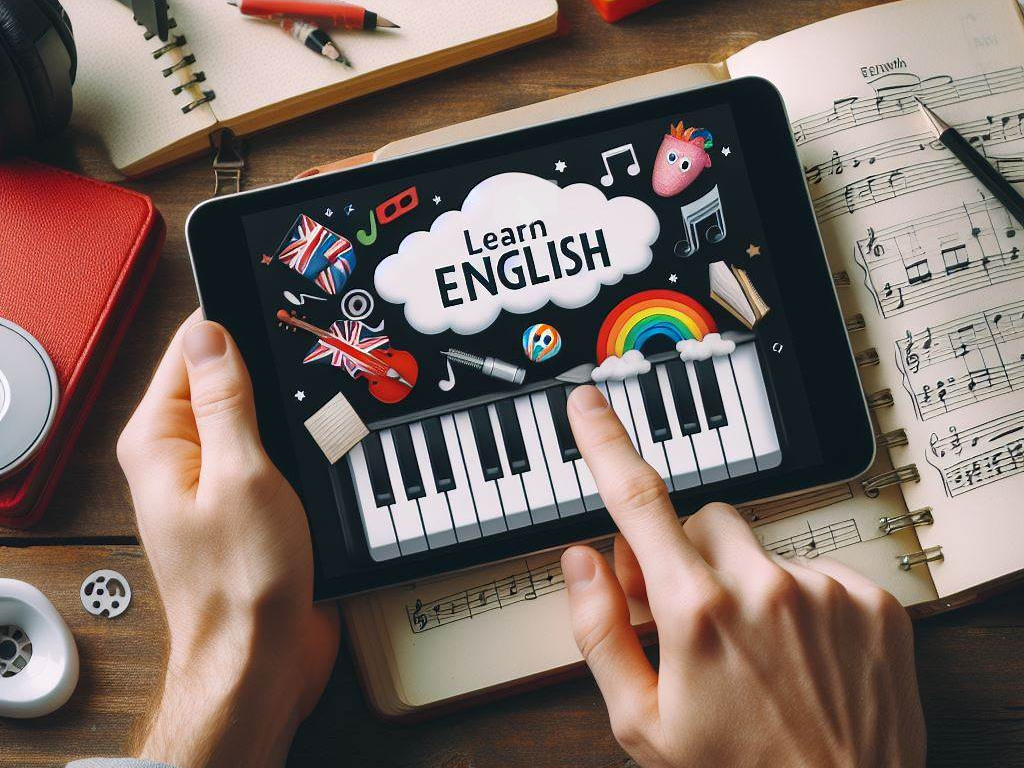¡Canta! ¡Baila! ¡Diviértete! ¡Aprende inglés!
¿Te gusta la música en inglés? ¿Quieres aprovecharla para mejorar tu nivel de idioma? Entonces este post es para ti. Te vamos a dar algunos consejos y recursos para que aprendas inglés con música de una forma amena y dinámica. ¡Sigue leyendo y descubre cómo la música puede ser tu mejor aliada para aprender inglés!
¿Por qué aprender inglés con música?
La música tiene muchos beneficios para el aprendizaje de un idioma. Aquí te mencionamos algunos de ellos:
- Te ayuda a entrenar tu oído y a familiarizarte con los sonidos y los acentos del inglés.
- Te permite aprender vocabulario útil y coloquial, así como expresiones y frases hechas que se usan en la vida real.
- Te facilita la memorización de las palabras y las estructuras gramaticales, ya que se repiten con ritmo y melodía.
- Te motiva y te divierte, lo que hace que el aprendizaje sea más placentero y efectivo.
¿Cómo aprender inglés con música?
Hay muchas formas de aprender inglés con música. Lo importante es que elijas la música que te gusta y que la escuches con atención y frecuencia. Aquí te doy algunas ideas de actividades que puedes hacer para aprender inglés con música:
- Busca la letra de las canciones que te gustan y léela mientras escuchas la música. Intenta comprender el significado y el contexto de las palabras y las frases. Puedes usar un diccionario o un traductor si necesitas ayuda.
- Canta las canciones en voz alta e intenta imitar la pronunciación y la entonación de los cantantes. Así mejorarás tu fluidez y tu confianza al hablar inglés.
- Escribe la letra de las canciones de memoria y comprueba si lo has hecho bien. Así reforzarás tu ortografía y tu gramática.
- Crea tus propias canciones en inglés usando el vocabulario y las estructuras que has aprendido. Puedes inspirarte en las canciones que te gustan o inventar algo nuevo. Así pondrás en práctica tu creatividad y tu expresión escrita.
- Juega con aplicaciones y plataformas online que te permiten aprender inglés con música de forma interactiva. Por ejemplo, puedes usar [LyricsTraining], que te ofrece videoclips musicales de diferentes géneros y niveles, y te reta a completar la letra de las canciones o a hacer karaoke.
¿Qué música escuchar para aprender inglés?
La respuesta es simple: la que te guste. No importa el género, el estilo o la época de la música que elijas, lo importante es que te guste y te interese. Así disfrutarás más del proceso y aprenderás mejor.
Sin embargo, si quieres algunas recomendaciones, te sugiero que escuches música que tenga una pronunciación clara, un vocabulario sencillo y una temática variada. Por ejemplo, puedes escuchar música pop, rock, folk o country. También puedes escuchar música de diferentes países y regiones, para conocer diferentes acentos y culturas.
Aquí hay algunas sugerencias de artistas y canciones que puedes escuchar para aprender inglés con música:
- – The Beatles: una de las bandas más famosas e influyentes de la historia de la música. Sus canciones son clásicas y tienen una pronunciación y un vocabulario fáciles de entender. Algunas canciones que puedes escuchar son: [Hey Jude], [Let It Be], [Yesterday], [Here Comes the Sun], etc.
- – Ed Sheeran: un cantante y compositor británico que tiene un gran éxito internacional. Sus canciones son modernas y tienen una temática variada, desde el amor hasta la amistad. Algunas canciones que puedes escuchar son: [Shape of You], [Perfect], [Thinking Out Loud], [Photograph], etc.
- – Taylor Swift: una cantante y compositora estadounidense que ha pasado del country al pop. Sus canciones son pegadizas y tienen un vocabulario y una gramática sencillos. Algunas canciones que puedes escuchar son: [You Belong With Me], [Love Story], [Blank Space], [Shake It Off], etc.
- – Bob Dylan: un cantante y compositor estadounidense que es considerado uno de los mejores letristas de la música. Sus canciones son poéticas y tienen un mensaje social y político. Algunas canciones que puedes escuchar son: [Blowin’ in the Wind], [The Times They Are A-Changin’], [Like a Rolling Stone], [Knockin’ on Heaven’s Door], etc.
Usa las canciones como inspiración para escribir o hablar en inglés. Por último, puedes usarlas como punto de partida para expresarte en inglés. Puedes escribir un resumen de lo que tratan, una opinión sobre lo que te han parecido, una historia relacionada con ellas o una carta a quien las interpreta (en una de esas y la lee Taylor o Harry y ¡bum! Te vuelves ultrapopular). También puedes hablar sobre la canción con una amistad, tus profesores o un intercambio lingüístico.
Como ves, aprender inglés con música es una forma muy divertida e interesante de mejorar tu nivel. Te animamos a que pruebes esta técnica y que compartas tus experiencias con nosotros. ¿Qué canciones te gustan para aprender inglés que nos quieras compartir? ¿Qué aplicaciones usas para practicar?
¡Déjanos un comentario y cuéntanos para que aprendamos de la mano!













































